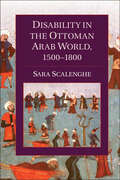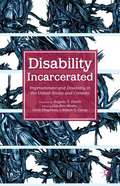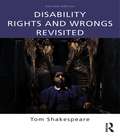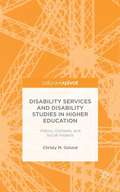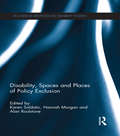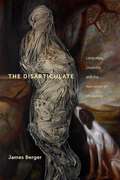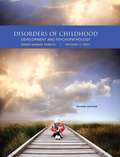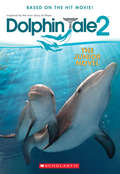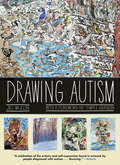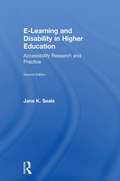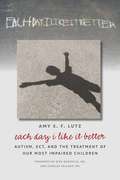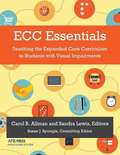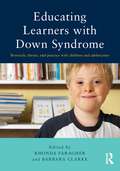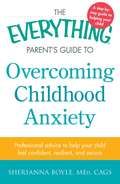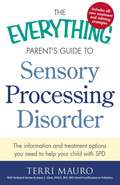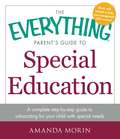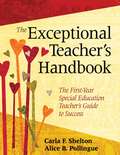- Table View
- List View
Disability in the Ottoman Arab World, 1500-1800 (Cambridge Studies in Islamic Civilization)
by Sara ScalenghePhysical, sensory, and mental impairments can influence an individual's status in society as much as the more familiar categories of gender, class, religion, race, and ethnicity. This was especially true of the early modern Arab Ottoman world, where being judged able or disabled impacted every aspect of a person's life, including performance of religious ritual, marriage, job opportunities, and the ability to buy and sell property. Sara Scalenghe's book is the first on the history of both physical and mental disabilities in the Middle East and North Africa, and the first to examine disability in the non-Western world before the nineteenth century. Unlike previous scholarly works that examine disability as discussed in religious texts such as the Qur'an and the Hadith, this study focuses on representations and classifications of disability and impairment across a wide range of biographical, legal, medical, and divinatory primary sources.
Disability Incarcerated
by Liat Ben-Moshe Chris Chapman Allison C. CareyDisability Incarcerated gathers thirteen contributions from an impressive array of fields. Taken together, these essays assert that a complex understanding of disability is crucial to an understanding of incarceration, and that we must expand what has come to be called 'incarceration. ' The chapters in this book examine a host of sites, such as prisons, institutions for people with developmental disabilities, psychiatric hospitals, treatment centers, special education, detention centers, and group homes; explore why various sites should be understood as incarceration; and discuss the causes and effects of these sites historically and currently. This volume includes a preface by Professor Angela Y. Davis and an afterword by Professor Robert McRuer.
Disability perspective in rehabilitation
by Rajesh Kr Verma Pragya VermaThis book will give the brief history about mental retardation, hearing impairment, visual impairment, autism spectrum disorder, learning disabilities, deaf blind and cerebral palsy and how the developments has been taken place in India and abroad. This book also contains different National and International Acts/Policies benefits for the persons with disabilities globally.
Disability Rights and Wrongs Revisited
by Tom ShakespeareOver the last forty years, the field of disability studies has emerged from the political activism of disabled people. In this challenging review of the field, leading disability academic and activist Tom Shakespeare argues that disability research needs a firmer conceptual and empirical footing. This new edition is updated throughout, reflecting Shakespeare’s most recent thinking, drawing on current research, and responding to controversies surrounding the first edition and the World Report on Disability, as well as incorporating new chapters on cultural disability studies, personal assistance, sexuality, and violence. Using a critical realist approach, Disability Rights and Wrongs Revisited promotes a pluralist, engaged and nuanced approach to disability. Key topics discussed include: dichotomies – going beyond dangerous polarizations such as medical model versus social model to achieve a complex, multi-factorial account of disability identity - the drawbacks of the disability movement's emphasis on identity politics bioethics - choices at the beginning and end of life and in the field of genetic and stem cell therapies relationships – feminist and virtue ethics approaches to questions of intimacy, assistance and friendship. This stimulating and accessible book challenges disability studies orthodoxy, promoting a new conceptualization of disability and fresh research agenda. It is an invaluable resource for researchers and students in disability studies and sociology, as well as professionals, policy makers and activists.
Disability Services and Disability Studies in Higher Education: History, Contexts, and Social Impacts
by Christy M. OslundChristy Oslund explores how the divide between disability studies and disability services, which exist on college and university campuses everywhere, impacts students with disability on campus.
Disability, Spaces and Places of Policy Exclusion (Routledge Advances in Disability Studies)
by Alan Roulstone Karen Soldatic Hannah MorganGeographies of disability have become a key research priority for many disability scholars and geographers. This edited collection, incorporating the work of leading international disability researchers, seeks to expand the current geographical frame operating within the realm of disability. Providing a critical and comprehensive examination of disability and spatial processes of exclusion and inclusion for disabled people, the book uniquely brings together insights from disability studies, spatial geographies and social policy with the purpose of exploring how spatial factors shape, limit or enhance policy towards, and the experiences of, disabled people. Divided into two parts, the first section explores the key concepts to have emerged within the field of disability geographies, and their relationship to new policy regimes. New and emerging concepts within the field are critically explored for their significance in conceptually framing disability. The second section provides an in-depth examination of disabled people’s experience of changing landscapes within the onset of emerging disability policy regimes. It deals with how the various actors and stakeholders, such as governments, social care agencies, families and disabled people traverse these landscapes under the new conditions laid out by changing policy regimes. Crucially, the chapters examine the lived meaning of changing spatial relations for disabled people. Grounded in recent empirical research, and with a global focus, each of the chapters reveal how social policy domains are challenged or undermined by the spatial realities faced by disabled people, and expands existing understandings of disability. In turn, the book supports readers to grasp future policy directions and processes that enable disabled people's choices, rights and participation. This important work will be invaluable reading for students and researchers involved in disability, geography and social policy.
The Disarticulate: Language, Disability, and the Narratives of Modernity (Cultural Front)
by James BergerLanguage is integral to oursocial being. But what is the status of those who stand outside of language?The mentally disabled, “wild” children, people with autism and otherneurological disorders, as well as animals, infants, angels, and artificialintelligences, have all engaged with language from a position at its borders.In the intricate verbal constructions of modern literature, the‘disarticulate’—those at the edges of language—have, paradoxically, playedessential, defining roles. Drawing on the disarticulate figures inmodern fictional works such as Billy Budd, The Sound and the Fury,Nightwood, White Noise, and The Echo Maker, among others,James Berger shows in this intellectually bracing study how these charactersmark sites at which aesthetic, philosophical, ethical, political, medical, andscientific discourses converge. It is also the place of the greatest ethicaltension, as society confronts the needs and desires of “the least of itsbrothers.” Berger argues that the disarticulate is that which is unaccountablein the discourses of modernity and thus stands as an alternative to theprevailing social order. Using literary history and theory, as well asdisability and trauma theory, he examines how these disarticulate figuresreveal modernity’s anxieties in terms of how it constructs its others.
Disorders of Childhood: Development and Psychopathology
by Robin Hornik Parritz Michael F. TroyWritten with the whole child in mind, this book discusses disorders in connection with the different stages of development, providing both a meaningful framework to promote learning. The authors emphasize multi-factor explanations of disorders as well as developmental frameworks and developmental pathways--presenting disorders and sets of disorders in the order in which they typically appear in a child's life. They also focus on the child-in-context (calling attention to the multiple settings in which the child is embedded) and emphasize the importance of taking a broad view that considers the whole child and his or her patterns of interest, abilities, and strengths, rather than a narrow view of a disorder or developmental delay. As a result of this holistic approach, which reflects the most up-to-date understanding of child and adolescent psychopathology, readers learn to think about disorders in the same way that caring adults think about disorders they encounter every day--in terms of an individual child who is coping with distress and dysfunction. Available with InfoTrac Student Collections http://gocengage.com/infotrac.
Dolphin Tale 2: The Junior Novel (Dolphin Tale 2)
by Gabrielle ReyesThe sequel to the heartwarming and inspirational movie Dolphin Tale! In theaters September 19, 2014. Dolphin Tale 2 is another true story inspired by the life of Winter, a dolphin who was badly injured and needed a prosthetic tail to survive. In DT2, Winter gets a co-star named Hope! Hope is a baby dolphin who was rescued by the Clearwater Marine Aquarium in 2010, five years and one day after Winter was rescued. The same all-star cast returns for DT2, including Harry Connick Jr., Ashley Judd, Morgan Freeman, and Kris Kristofferson. Winter and Hope will play themselves in the movie, too! Includes an eight-page insert with color photos from the movie.
Drawing Autism
by Jill MullinThis &“jaw-droppingly beautiful book&” explores the work and creative process of artists diagnosed with ASD, with a foreword by Temple Grandin (Library Journal). In this volume, behavior analyst and educator Jill Mullin has assembled a staggering array of work from established artists with autism like Gregory Blackstock and Jessica Park—as well as many who are unknown but no less talented. Their creations, coupled with artist interviews, comprise a fascinating and compelling book that serves to educate and inspire anyone who knows someone diagnosed with ASD. Mullin&’s introduction and the foreword by bestselling author Temple Grandin also provide an overview of autism, and advocate for nurturing the talents, artistic and otherwise, of autistic individuals. &“What is the actual experience of living with autism in a deep-felt sense, beyond the social stereotypes and headline-worthy superskills? Drawing Autism, a celebration of the artistry and self-expression found in artwork by people diagnosed with autism, explores just that. The stunning volume features works by more than fifty international contributors, from children to established artists, that illustrate the rich multiplicity of the condition.&” —The Atlantic &“Mullin . . . brings together fascinating works by 40 artists on the spectrum with their answers to her questions about their process.&” —The Boston Globe &“A testament to the power of art to reveal the inner world of people living with ASD.&” —Publishers Weekly
The Dyslexia Handbook: Procedures Concerning Dyslexia and Related Disorders (Revised #2014)
by The Editors at the Texas Education AgencyThe handbook contains the SBOE-approved procedures concerning dyslexia and related disorders.It also provides guidelines for school districts to follow as they identify and provide services for students with dyslexia.
E-Learning and Disability in Higher Education: Accessibility Research and Practice
by Jane K. SealeMost people working within the higher education sector understand the importance of making e-learning accessible to students with disabilities, yet it is not always clear exactly how this should be accomplished. E-Learning and Disability in Higher Education evaluates current accessibility practice and critiques the extent to which 'best' practices can be confidently identified and disseminated. This second edition has been fully updated and includes a focus on research that seeks to give 'voice' to disabled students in a way that provides an indispensible insight into their relationship with technologies and the institutions in which they study. Examining the social, educational, and political background behind making online learning accessible in higher and further education, E-Learning and Disability in Higher Education considers the roles and perspectives of the key stake-holders involved in e-learning: lecturers, professors, instructional designers, learning technologists, student support services, staff developers, and senior managers and administrators.
Each Day I Like It Better: Autism, ECT, and the Treatment of Our Most Impaired Children
by Amy LutzIn the fall of 2009, Amy Lutz and her husband, Andy, struggled with one of the worst decisions parents could possibly face: whether they could safely keep their autistic ten-year-old son, Jonah, at home any longer. Multiple medication trials, a long procession of behavior modification strategies, and even an almost year-long hospitalization had all failed to control his violent rages. Desperate to stop the attacks that endangered family members, caregivers, and even Jonah himself, Amy and Andy decided to try the controversial procedure of electroconvulsive therapy or ECT. Over the last three years, Jonah has received 136 treatments. His aggression has greatly diminished, and for the first time Jonah, now fourteen, is moving to a less restricted school. Each Day I Like It Better recounts the journeys of Jonah and seven other children and their families (interviewed by the author) in their quests for appropriate educational placements and therapeutic interventions. The author describes their varied, but mostly successful, experiences with ECT. A survey of research on pediatric ECT is incorporated into the narrative, and a foreword by child psychiatrist Dirk Dhossche and ECT researcher and practitioner Charles Kellner explains how ECT works, the side effects patients may experience, and its current use in the treatment of autism, catatonia, and violent behavior in children.
Each Day I Like It Better: Autism, ECT, and the Treatment of Our Most Impaired Children
by Amy S. LutzIn the fall of 2009, Amy Lutz and her husband, Andy, struggled with one of the worst decisions parents could possibly face: whether they could safely keep their autistic ten-year-old son, Jonah, at home any longer. Multiple medication trials, a long procession of behavior modification strategies, and even an almost year-long hospitalization had all failed to control his violent rages. Desperate to stop the attacks that endangered family members, caregivers, and even Jonah himself, Amy and Andy decided to try the controversial procedure of electroconvulsive therapy or ECT. Over the last three years, Jonah has received 136 treatments. His aggression has greatly diminished, and for the first time Jonah, now fourteen, is moving to a less restricted school. Each Day I Like It Better recounts the journeys of Jonah and seven other children and their families (interviewed by the author) in their quests for appropriate educational placements and therapeutic interventions. The author describes their varied, but mostly successful, experiences with ECT. A survey of research on pediatric ECT is incorporated into the narrative, and a foreword by child psychiatrist Dirk Dhossche and ECT researcher and practitioner Charles Kellner explains how ECT works, the side effects patients may experience, and its current use in the treatment of autism, catatonia, and violent behavior in children.
ECC Essentials: Teaching The Expanded Core Curriculum To Students With Visual Impairments
by Carol B. AllmanThe book discusses the nine ECC content areas along with relevant assessments, the important roles of teachers of students with visual impairments as well as their students' parents, and learning activities and resources.
Educating Learners with Down Syndrome: Research, theory, and practice with children and adolescents
by Barbara Clarke Rhonda FaragherFor individuals with Down syndrome, the extent of the effect of intellectual disability depends largely on the degree of provision of appropriate support and intervention. In Educating Learners with Down Syndrome, editors Rhonda Faragher and Barbara Clarke have brought together a number of expert contributors, whose chapters review recent findings in the field of DS education, highlight promising practices, and identify areas for future research. While the emphasis is primarily on the school years, links to early intervention and to life post-16 are made, with chapters organized into three parts: conceptual overview of issues in learning and teaching, learning mathematics, and literacy development. The book is also united by the cohesive themes of assessment, evidence-based practice, and inclusive practices. Educating Learners with Down Syndrome importantly incorporates the voices of individuals with Down syndrome, whose personal narratives add significance to the research mission of the text and demonstrate the authors' inclusive philosophy. Aimed at researchers, teacher educators, higher degree students, and policy makers, this book is the first of its kind to provide a compendium of research on educating learners with Down syndrome.
Emotional Intelligence of visually impaired
by Amruta PandaThis book has been an attempt to find out the relation which exist in terms of emotional intelligence, level of aspiration and educational achievement of different categories of visually impaired adolescent girls studying in various settings.
eQuality
by Peter Blanck J. D. David BraddockNever before have the civil rights of people with disabilities aligned so well with developments in information and communication technology. The center of the technology revolution is the Internet's World Wide Web, which fosters unprecedented opportunities for engagement in democratic society. The Americans with Disabilities Act likewise is helping to ensure equal participation in society by people with disabilities. Globally, the Convention on the Rights of Persons with Disabilities further affirms that persons with disabilities are entitled to the full and equal enjoyment of fundamental personal freedoms. This book is about the lived struggle for disability rights, with a focus on Web equality for people with cognitive disabilities, such as intellectual disabilities, autism, and print-related disabilities. The principles derived from the right to the Web - freedom of speech and individual dignity - are bound to lead toward full and meaningful involvement in society for persons with cognitive and other disabilities.
The Everything Parent's Guide to Overcoming Childhood Anxiety: Professional Advice to Help Your Child Feel Confident, Resilient, and Secure
by Sherianna BoylePractical advice to help parents and kids cope with anxiety!All kids worry. But chronic worry can turn into frustration when it becomes the focus of your child's life. For some children, anxiety and fear are overwhelming and all-consuming. But with proper care and treatment, these kids can overcome paralyzing anxiety, learn long-term coping skills, and build resiliency. The Everything Parent's Guide to Overcoming Childhood Anxiety can help, with a hopeful outlook and expert advice on:Determining the causes and triggers of your child's anxiety.Understanding the difference between self-control and self-regulation.Finding the right treatments, including complementary approaches like nutrition, integrated therapy, and self-care.Educating and working with teachers and school officials.Assisting your child to create a confident, promising future. Best of all, implementing the practices found in this book can help you alter the course of your child's brain activity, changing beta high-frequency (hyperalert, fearful) brain waves to alpha (calming) waves. With this reassuring guide, you can rest easy knowing you have the information and resources you need to help your child feel competent, capable, and healthy.
The Everything Parent's Guide to Sensory Processing Disorder
by Jenny L. Clark Terri MauroIf your child has been diagnosed with sensory processing disorder (SPD), you understand how simple, everyday tasks can become a struggle. With The Everything Parent's Guide to Sensory Processing Disorder, you can help your child learn how to reduce stress and minimize the symptoms of SPD. In this all-in-one guide, Terri Mauro provides all the information you need regarding SPD, including: An in-depth definition of SPD and its effects. The newest treatments, therapies, and diets. Techniques for use outside of the therapist's office. The latest research on physical causes of SPD. Advice for coping at school, home, and play. Your child deserves to live a life free of the difficulties SPD can bring. The Everything Parent's Guide to Sensory Processing Disorder gives you professional advice to help your child to manage sensory needs and feel calmer, happier, and in control, now and in the future.
The Everything Parent's Guide to Sensory Processing Disorder: The Information and Treatment Options You Need to Help Your Child with SPD
by Terri MauroIf your child has been diagnosed with sensory processing disorder (SPD), you understand how simple, everyday tasks can become a struggle. With The Everything Parent's Guide to Sensory Processing Disorder, you can help your child learn how to reduce stress and minimize the symptoms of SPD. In this all-in-one guide, Terri Mauro provides all the information you need regarding SPD, including:An in-depth definition of SPD and its effects.The newest treatments, therapies, and diets.Techniques for use outside of the therapist's office.The latest research on physical causes of SPD.Advice for coping at school, home, and play. Your child deserves to live a life free of the difficulties SPD can bring. The Everything Parent's Guide to Sensory Processing Disorder gives you professional advice to help your child to manage sensory needs and feel calmer, happier, and in control, now and in the future.
The Everything® Parent's Guide to Special Education: A complete step-by-step guide to advocating for your child with special needs
by Amanda MorinBe your child's best advocate! Children with special needs who succeed in school have one thing in common--their parents are passionate and effective advocates. It's not an easy job, but with The Everything Parent's Guide to Special Education, you will learn how to evaluate, prepare, organize, and get quality services, no matter what your child's disability. This valuable handbook gives you the tools you need to navigate the complex world of special education and services, with information on: Assessment and evaluation Educational needs for different disabilities, including multiple disabilities Current law, including the Individuals with Disabilities Education Act (IDEA) Working within the school system to create an IEP The importance of keeping detailed records Dealing with parent-school conflict With worksheets, forms, and sample documents and letters, you can be assured that you'll have all you need to help your child thrive--in school and in life!
The Everything Parent's Guide to Special Education
by Amanda MorinBe your child's best advocate! Children with special needs who succeed in school have one thing in common--their parents are passionate and effective advocates. It's not an easy job, but with The Everything Parent's Guide to Special Education, you will learn how to evaluate, prepare, organize, and get quality services, no matter what your child's disability. This valuable handbook gives you the tools you need to navigate the complex world of special education and services, with information on: Assessment and evaluation Educational needs for different disabilities, including multiple disabilities Current law, including the Individuals with Disabilities Education Act (IDEA) Working within the school system to create an IEP The importance of keeping detailed records Dealing with parent-school conflict With worksheets, forms, and sample documents and letters, you can be assured that you'll have all you need to help your child thrive--in school and in life!
The Everything Parent's Guide to Special Education: A Complete Step-by-Step Guide to Advocating for Your Child with Special Needs
by Amanda MorinBe your child's best advocate!Children with special needs who succeed in school have one thing in common--their parents are passionate and effective advocates. It's not an easy job, but with The Everything Parent's Guide to Special Education, you will learn how to evaluate, prepare, organize, and get quality services, no matter what your child's disability.This valuable handbook gives you the tools you need to navigate the complex world of special education and services, with information on:Assessment and evaluationEducational needs for different disabilities, including multiple disabilitiesCurrent law, including the Individuals with Disabilities Education Act (IDEA)Working within the school system to create an IEPThe importance of keeping detailed recordsDealing with parent-school conflict With worksheets, forms, and sample documents and letters, you can be assured that you'll have all you need to help your child thrive--in school and in life!
The Exceptional Teacher's Handbook: The First-Year Special Education Teacher?s Guide to Success
by Alice B. Pollingue Carla F. SheltonThe first year in the career of a special education teacher is filled with expectation and promise. Addressing the most common needs of beginning special education teachers, The Exceptional Teacher's Handbook helps new educators move confidently from preplanning to post-planning for the entire school year.The authors present a step-by-step management approach complete with planning checklists and other ready-to-use forms within the context of IDEA 2004 and NCLB. Written from the perspective of a classroom teacher, this popular reference offers updates on:* Recognized disabilities* Best instructional practices for getting the most out of your students* Successful parent conferences* Effective plans for professional learning* Alternate assessments, emergencies in the school setting, education terminology, and moreActively address challenges and concerns with this one-stop handbook that will help smooth the transition from student teacher to professional educator.
